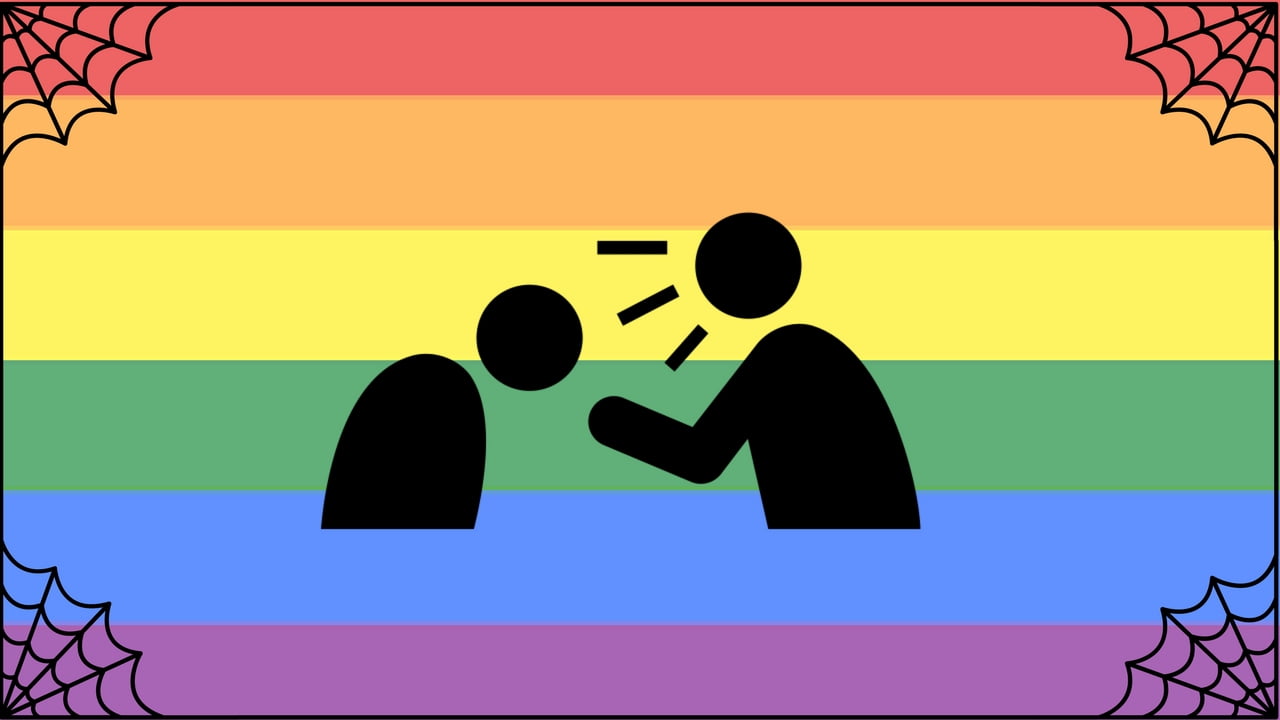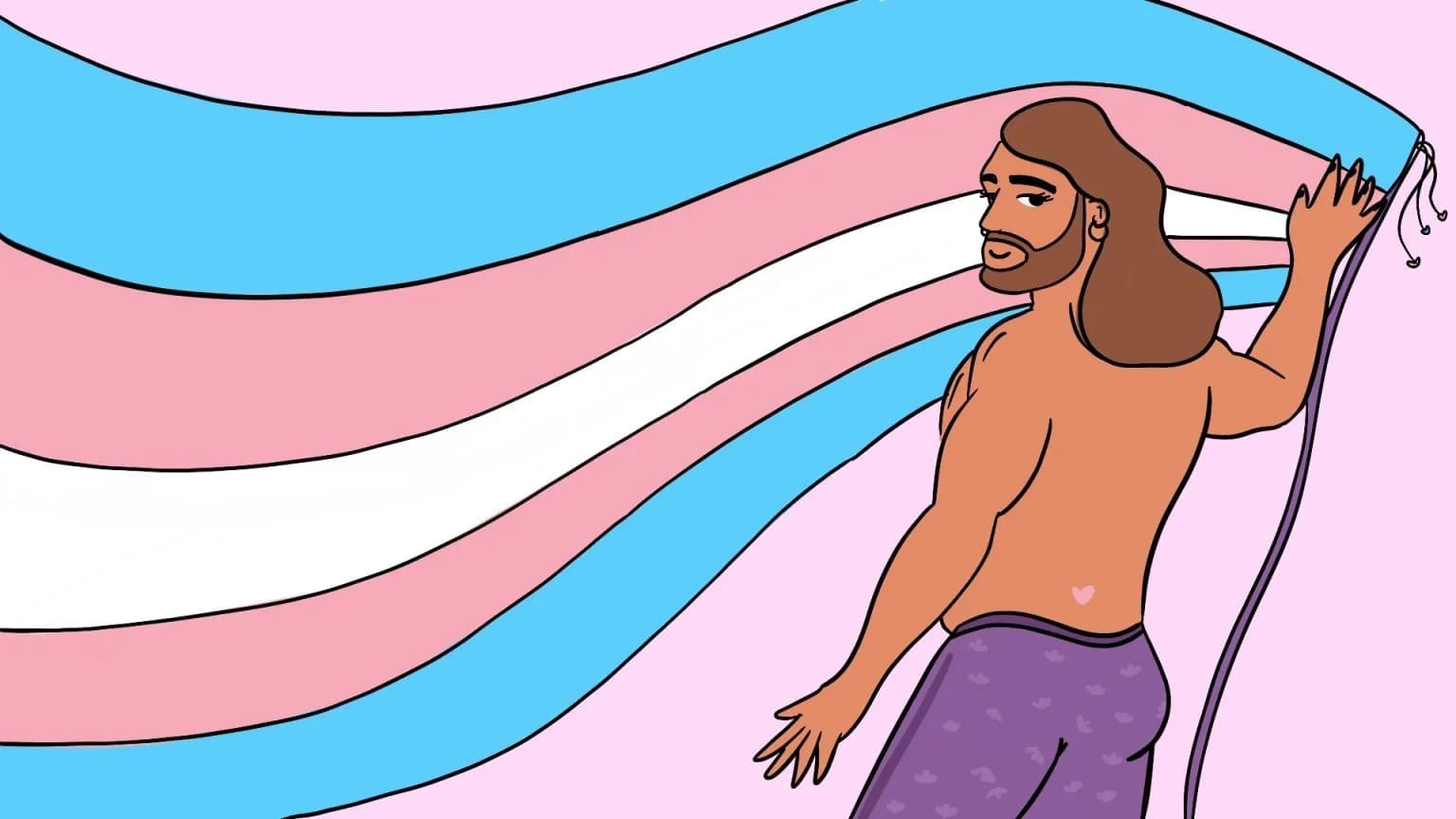I heard the icy frost crunch under my soles as I staggered back home from the university. I was close to tears, shaking. My cell phone rang as my partner’s text message displayed – “Are you home already? Do you want to stop by?”
I did not want to stop by but not because it was 11 pm on a January night. I replied- ”I want this to end” as I burst out crying.
My partner and I were friends and had started dating just over two months before at the time. We met as fellow atheists, humanists and queer persons at a society meet in the University of Surrey where I was studying at the time.
It was the first time I was anywhere outside the country and alone and we bonded quickly. Over time we realized our feelings were more. Despite several misgivings, I turned my back on worrying about my orthodox Brahmin family and threw caution to the winds.
I was happy despite several initial complications. Yet the most immediate abrasive reaction did not come from my family; rather it came from people who I considered friends, people who were from within the queer community on campus.
When I first started attending LGBT+ events at my university, I declared that I was bisexual after much caution and time. Biphobia, misogyny or transphobia within the queer world itself is not a novelty and I was well aware of that. Yet, I was quite visible due to most of the society being overwhelmingly Caucasian and I had no problems making friends who would open up to me.
Also read: Why Is There Still Biphobia Within The Queer Community?
As a result, gay men approached me with an openly clear interest in my partner (who was my friend at the time), while I would routinely get introduced to lesbians in rituals of match-making. So when I chose to be with my friend who was a genderfluid-bisexual, a lot of people (if not all) suddenly turned hostile.
That evening was a testament to that. It was an LGBT+ meet happening at one of our campus bars and four of us remained behind for drinks. The others comprised of two lesbians and a gay person. I will name them X, Y and Z for this piece.
the most immediate abrasive came from people I considered friends, who were from within the queer community on campus.
Soon the chat diverted, against my wishes, to my partner and intrusive questions began which I tried not entertain. “He is fooling you, love; he will be shagging you on one hand and his boyfriend on the other”, commented Z completely ignoring the fact that they were stereotyping my own sexuality in the process.
“Is this what you mean by bi? I mean you’re still dating a man”, said X who I later learnt had bitterly remarked several times upon hearing of my relationship. Not only could I feel my own identity being invalidated as time went by, I felt mortified by the humiliation towards my partner’s identities. I felt guilty that all of this was happening because I dated them.
I could feel my anxiety spiking at one point of the conversation and ran to the washroom. Sure enough, Y came looking for me and carried me back with a pretence of concern. I was told “You could have anyone over here love… men, women, straight blokes hit on you all the time; why be with someone who ain’t sure of himself?”. This was followed by calling over random strangers to the table with “See there’s a nice guy” disregarding my dead, stony silence completely.
I was no stranger to harassment. I had received a lot of it for being in what was considered “unconventional” relationships in college when I was studying in Kolkata. I never understood the parameters of conventionality. As long as I was looking to be happy and healthy in a relationship, did it matter? Unfortunately, very often Indian society saw things differently. It equates women daring to be different with lewdness. The general lack of respect for personal space adds to the problem.
Also Read: Bullied, Stripped and Raped: What A Trans Woman Suffered At Her School
Hence, two years after I graduated when I flew to the United Kingdom, I thought there was finally a student experience I would enjoy minus all the prejudice steeped in Indian campuses. I did in many ways except for this one set of events which knocked me over. Perhaps it was because I did not expect this in a country with relatively liberal values or because it came from within a community that was marginalized itself.
I had come across monosexual queer students on the campus with twisted notions of bisexuality and pansexuality. True to that, I heard at least on two separate occasions on how bisexual people were all about drama or were serial monogamists.
Some would not speak to people identifying as bisexual but when they would, they attacked me verbally or mocked me. Gay men, who were previously interested in my partner, suddenly saw me as a threat to their dating pool. My partner and I were cornered on several occasions where we were asked inquisitive questions about our sex life.
Some viewed my seemingly heteronormative relationship as straight privilege. One time someone, in an inebriated state, even tried to forcibly kiss my partner. Another time someone tried to feel me up under the reasoning that since I was bisexual I must also be promiscuous (which is fine to be, but I was not and I did not consent).
I could not defend myself that evening because it happened with people I considered my friends. We expect a certain amount of empathy from our pals, forgetting about the reality of peer pressure. My anxious brain was slow to process that I was being made to feel this way by people whom I trusted and in a place that is so far detached from patriarchal values I had grown up with.
My partner had immediately grasped what must have happened as they frantically called me in response to my message. After all, they had been harassed over the same issue as well.
I did not expect this in a country with relatively liberal values or because it came from within a community that was marginalized itself.
It took me constant reassurances from them and a host of visits to the counsellors on campus, to understand I was a victim of the presence of hierarchy within the LGBT+ community. Even today some of my formerly hostile ex-cohorts express surprise as to how we really made things work over years by surviving post-university and traversing continents for each other.
Of course campuses in the UK are well equipped to deal with harassment and not just with counsellors in place. After an attempt by X, this time to create a rift between us and other members of the LGBT+ society, my partner made a complaint to the LGBT+ committee who swiftly moved to ban the persons concerned from the bar and meets. A draft petition was made to be forwarded to the Equality and Diversity section of the campus union in case of more attempts, which would result in severe punishment if done.
I spoke to my personal tutor about ensuring a distance from one of the perpetrators who studied in my class. Steps were taken to ensure students who faced such experiences within – and even outside of – university could have quick redress at once.
In time I learnt from my experience and got into a society elected welfare position within the LGBT+ committee, so I could help more people who faced what I faced. I only hope to see the same taking place on Indian campuses so that student-hood can remain free and safe for all.
My experience in the UK stands witness to the fact that discriminatory practices on timings based on gender and gender policing are not only ineffective but merely misogynistic prejudices disguised as steps for safety. Nothing can replace a well rounded, supportive and prompt system of monitoring and penalizing harassment itself, as effective measures of student welfare on campus.
Also Read: Queerphobic Comrades And A Dream For A Feminist Internet
About the author(s)
A queer activist, feminist and former lawyer with an active interest in humanitarian causes. She loves photography, revising her Spanish lessons, studying cultures and history, and travelling (or reading about it when she can't).




